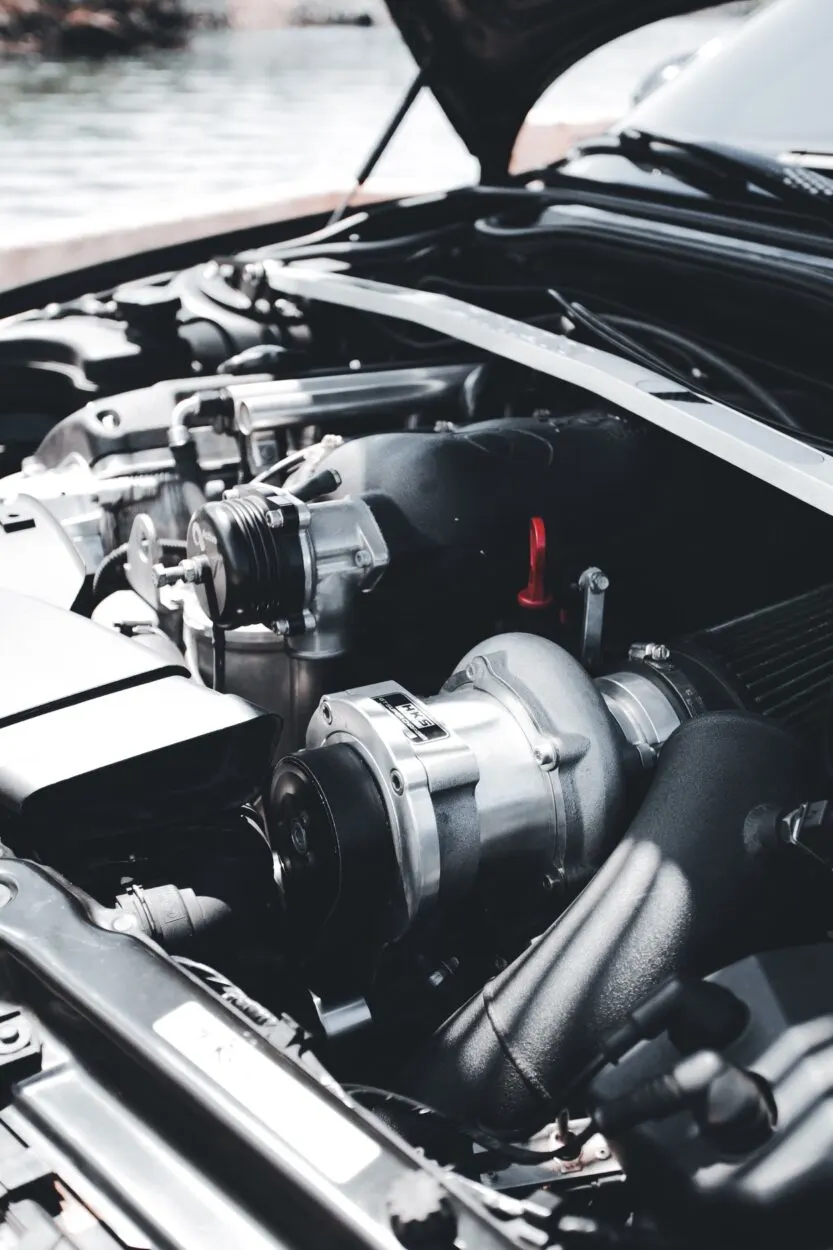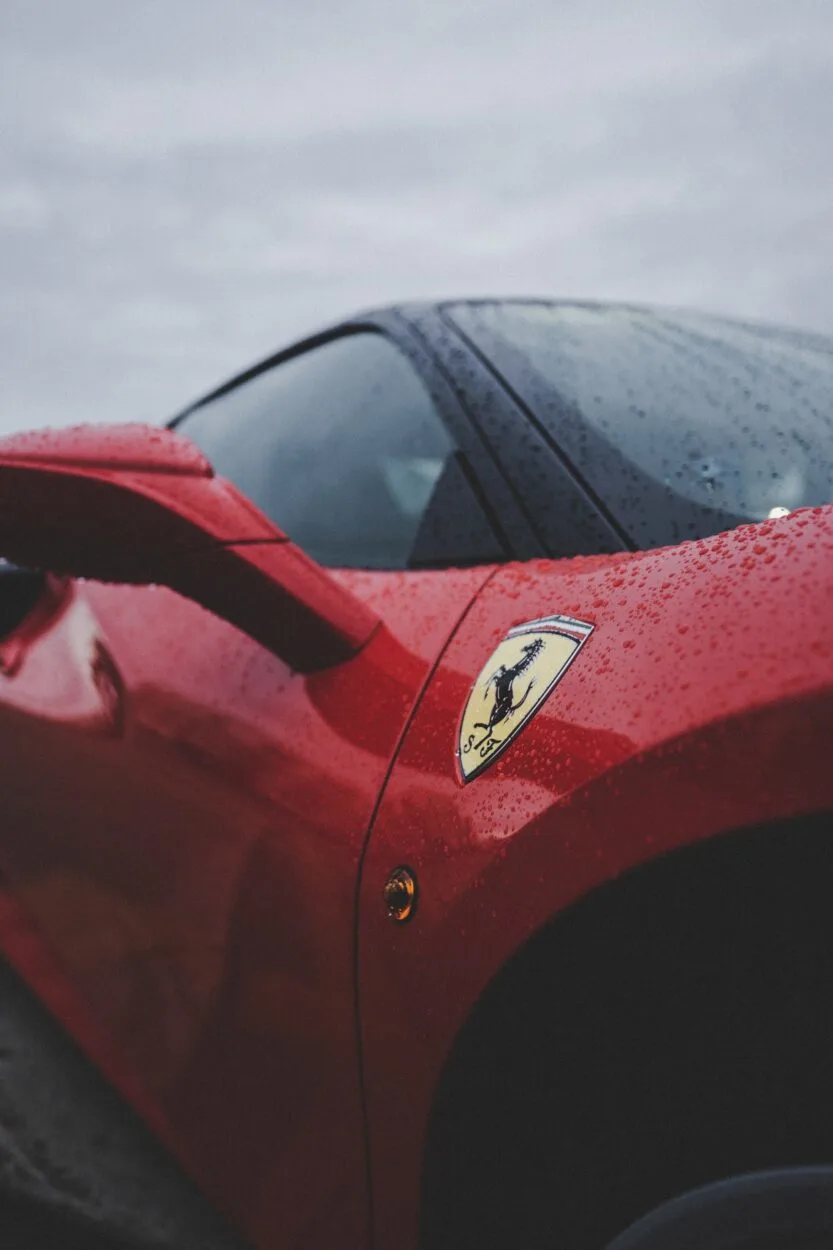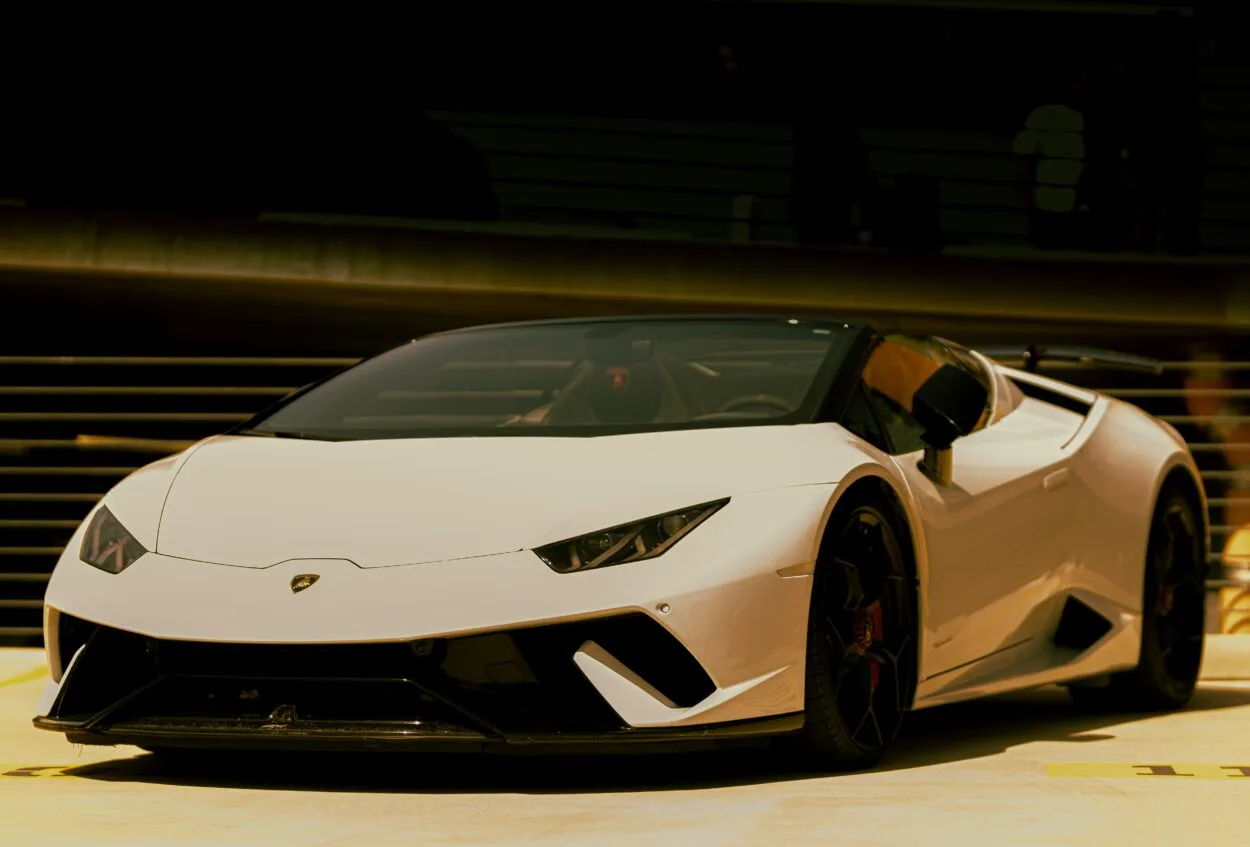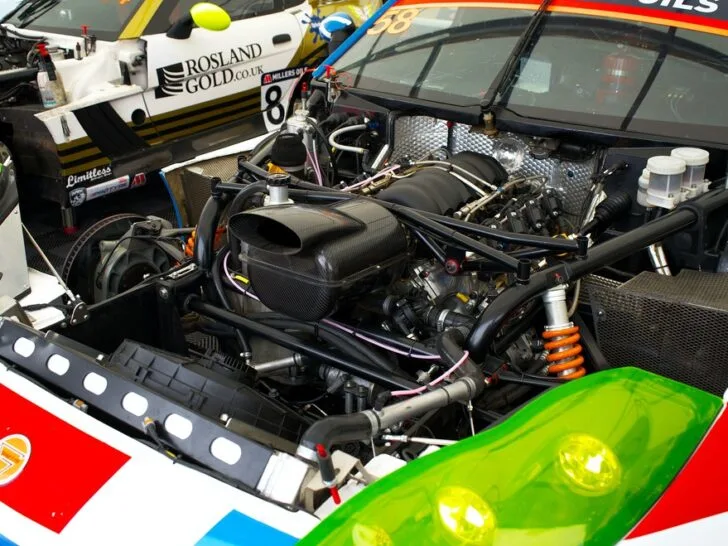A V8 engine is an eight-cylinder engine that has two banks of four cylinders that are arranged in a V-shape. This configuration allows for a compact and lightweight design, as well as a smooth and balanced distribution of power.
V8 engines are commonly found in high-performance cars and trucks and are known for their strong acceleration and high horsepower.
A V12 engine, on the other hand, has 12 cylinders that are also arranged in a V-shape. This configuration provides even more power and smoothness than a V8 engine, but at the cost of increased weight and complexity.
V12 engines are typically found in luxury and high-performance vehicles, such as sports cars, supercars, and high-end luxury cars. They are known for their exceptional power and high-end performance.
Pros And Cons Of V8 And V12 Engines
V8 engines have several advantages and disadvantages. Some of the pros of V8 engines include:
- Strong acceleration: V8 engines have a lot of power and torque, which makes them great for accelerating quickly.
- High horsepower: V8 engines are known for producing high horsepower, which makes them ideal for high-performance vehicles.
- Compact and lightweight design: Because of the V-shape configuration, V8 engines are relatively compact and lightweight, which helps to improve fuel economy and handling.
- Widely available: V8 engines are used in a variety of vehicles, so they are widely available and easy to find replacement parts for.
Some of the cons of V8 engines include the following:
- Higher fuel consumption: V8 engines typically consume more fuel than smaller engines, which can be a concern for those looking to save money on gas.
- More complex than smaller engines: V8 engines are more complex than smaller engines, making them more difficult and expensive to repair.
- More emissions: V8 engines tend to produce more emissions than smaller engines, which can be a concern for those looking to reduce their environmental impact.
V12 engines have several advantages and disadvantages as well.
Some of the pros of V12 engines include the following:
- Exceptional power: V12 engines produce more power and torque than V8 engines, which makes them ideal for high-end performance vehicles.
- Smoothness: V12 engines have a balanced distribution of power, making them very smooth and refined.
- High-end performance: V12 engines are typically found in luxury and high-performance vehicles, which gives the driver a sense of luxury and exclusivity.
Some of the cons of V12 engines include the following:
- Higher fuel consumption: V12 engines typically consume more fuel than V8 or smaller engines, which can be a concern for those looking to save money on gas.
- More complex than smaller engines: V12 engines are more complex than smaller engines, making them more difficult and expensive to repair.
- More emissions: V12 engines tend to produce more emissions than smaller engines, which can be a concern for those looking to reduce their environmental impact.
- Higher weight and size: V12 engines are larger and heavier than V8 engines, which can negatively impact handling and fuel economy.
- Higher cost: V12 engines are more expensive to produce than V8 engines, which can make the car that uses them more expensive.
Fuel Efficiency Of V12 And V8
Fuel efficiency is one of the main differences between V8 and V12 engines. In general, V8 engines tend to be more fuel-efficient than V12 engines, due to their smaller size and fewer cylinders.
The V12 engine has more cylinders and therefore has to work harder to produce the same amount of power as a V8 engine, which results in higher fuel consumption. Additionally, the V12 engine is generally larger and heavier than a V8 engine, which also negatively impacts fuel efficiency.
In terms of specific fuel consumption figures, it varies greatly depending on the specific engine and the vehicle it is installed in. However, on average, a V8 engine will consume about 10-15% less fuel than a V12 engine.
However, it’s worth noting that newer V12 engines are starting to adopt advanced technologies such as direct injection, cylinder deactivation, and hybridization that help to improve their fuel efficiency. These technologies are not only improving the V12’s fuel efficiency but also its emissions.
In the future, we may see V12 engines being preferred over V8 engines due to their enhanced technology and advancements.
Cost Of V8 And V12 Engines
The cost of V8 and V12 engines can vary greatly depending on the specific engine and the vehicle it is installed in. However, in general, V12 engines tend to be more expensive than V8 engines due to their larger size, additional cylinders, and greater complexity.
The cost of a V8 engine can range from a few thousand dollars for a basic, non-performance engine, to tens of thousands of dollars for a high-performance engine. The cost of a V12 engine can be significantly more, with prices often exceeding $50,000 or more for a high-performance engine.
Additionally, cars that use V12 engines are typically more expensive than cars that use V8 engines, due to the higher cost of the engine and the luxury and high-performance features that are often included in V12-powered vehicles. This can make the cost difference between a V8 and a V12 car quite significant.
It’s important to know that a V8 engine can come in different configurations and with different technologies, which can greatly affect their cost. For example, a V8 engine with direct injection and turbocharging will be more expensive than a V8 engine without those technologies.
It’s preferable for people to buy a V8 engine vehicle for daily commutes in vehicles like cars or trucks. While both vehicles have their own perks, V12 engine vehicles are more suitable for luxury accommodations.
Performance Of V8 And V12 Engines
V8 and V12 engines are both known for their high performance, but they differ in how they deliver that performance.

V8 engines generally have strong acceleration and high horsepower, which makes them great for high-performance cars and trucks. They also have a compact and lightweight design, which helps to improve fuel economy and handling.
Many V8 engines are available with forced induction (such as turbocharging or supercharging) which helps to increase the horsepower and torque output. They also tend to have a good balance between power and fuel efficiency.
On the other hand, V12 engines are known for their exceptional power and high-end performance, which makes them ideal for luxury and high-performance vehicles. They have a smooth and refined power delivery, thanks to the balanced distribution of power from its 12 cylinders.
They also tend to produce more torque than V8 engines, which can provide a more effortless acceleration. However, they are larger and heavier than V8 engines, which can negatively impact handling and fuel economy.

In summary, V8 engines are known for their strong acceleration, high horsepower, and a balance between power and fuel efficiency, while V12 engines are known for their exceptional power, high-end performance, smooth and refined power delivery, and more torque than V8 engines. However, V12 engines are larger and heavier than V8 engines, which can negatively impact handling and fuel economy.
Popular Vehicles With V8 And V12 Engines
V8 engines are commonly found in a wide range of vehicles, including high-performance cars and trucks, sports cars, muscle cars, luxury cars, and SUVs. Some popular vehicles that feature V8 engines include:
| Ford Mustang | The Ford Mustang is a classic American muscle car that has been powered by V8 engines for decades. |
| Chevrolet Camaro | The Chevrolet Camaro is another classic American muscle car powered by V8 engines. |
| Dodge Challenger | The Dodge Challenger is a muscle car that features a range of V8 engines, including the powerful Hellcat engine. |
| Chevrolet Silverado | The Chevrolet Silverado is a full-size pickup truck that offers a range of V8 engine options, including a 6.2-liter V8 that produces 420 horsepower. |
| Ford F-150 | The Ford F-150 is another popular full-size pickup truck that is available with a range of V8 engine options. |
V12 engines, on the other hand, are typically found in luxury and high-performance vehicles, such as sports cars, supercars, and high-end luxury cars. Some popular vehicles that feature V12 engines include:
- Ferrari 812 Superfast: The Ferrari 812 Superfast is a supercar that features a naturally aspirated V12 engine that produces 789 horsepower.
- Lamborghini Aventador: The Lamborghini Aventador is another supercar that is powered by a V12 engine.
- Rolls-Royce Ghost: The Rolls-Royce Ghost is a high-end luxury car that is powered by a V12 engine.
- Mercedes-Benz S65 AMG: The Mercedes-Benz S65 AMG is a luxury car that is available with a V12 engine option.
- BMW 7 Series: The BMW 7 series is a luxury car that is available with a V12 engine option.

It’s good to know that many luxury carmakers like Mercedes, BMW, and Audi are phasing out their V12 engines in favor of smaller, more efficient V8 and V6 engines, or hybrid powertrains.
FAQs
What is the difference between a V8 and a V12 engine?
A V8 engine is an eight-cylinder engine that has two banks of four cylinders that are arranged in a V-shape. A V12 machine, on the other hand, has 12 cylinders that are also arranged in a V-shape.
V8 engines are known for their strong acceleration, high horsepower, and balance between power and fuel efficiency, while V12 engines are known for their exceptional power, high-end performance, smooth power delivery, and more torque than V8 engines.
Which is more powerful, a V8 or a V12 engine?
V12 engines are generally more powerful than V8 engines, due to the additional cylinders and larger displacement. However, the specific power output of an engine depends on many factors, such as engine size, compression ratio, and the technology used.
Which is better for fuel efficiency, a V8 or a V12 engine?
V8 engines tend to be more fuel-efficient than V12 engines due to their smaller size and fewer cylinders.
V12 engines have more cylinders and therefore have to work harder to produce the same amount of power as a V8 engine, which results in higher fuel consumption.
Conclusion
- In conclusion, V8 and V12 are high-performance engines with different advantages and disadvantages.
- V8 engines are known for their strong acceleration, high horsepower, and balance between power and fuel efficiency.
- V8 engines are commonly found in high-performance cars and trucks, sports cars, muscle cars, luxury cars, and SUVs.
- V12 engines, on the other hand, are known for their exceptional power and high-end performance, smooth and refined power delivery, and more torque than V8 engines.
- They are typically found in luxury and high-performance vehicles, such as sports cars, supercars, and high-end luxury cars.
- Both V8 and V12 engines have their own unique characteristics and are suited for different types of vehicles and driving preferences.
- It’s important to consider factors such as fuel efficiency, cost, and performance when deciding between a V8 and a V12 engine.
Other Articles:
- Difference Between Pink And Purple: Is There A Specific Wavelength Where One Becomes The Others Or Is It Dependent On The Observer? (Facts Revealed)
- What Is The Difference Between Subbed Anime And Dubbed Anime? (Difference Explained)
- What Are Some Main Differences Between JRPGs And Western RPGs? (Let’s Find Out)

